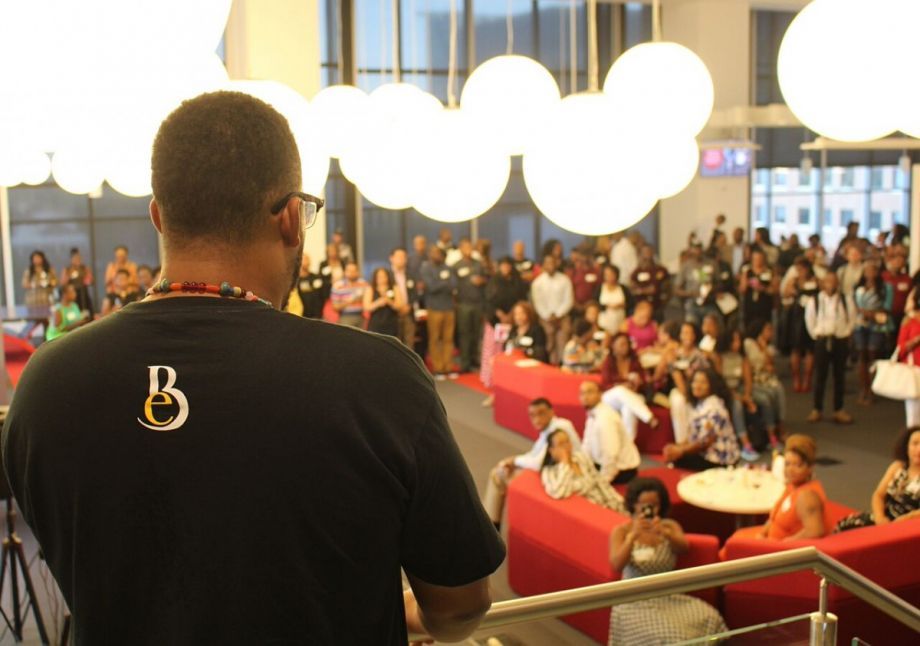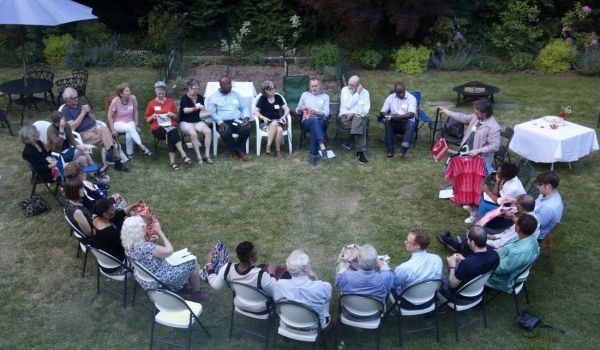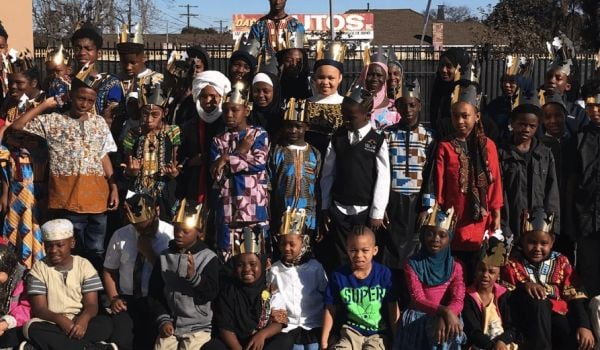When Aniyia Williams started her company, Tinsel, she didn’t have much money in the bank. The company makes headphones that double as jewelry.
“It’s been a long, arduous journey building it,” Williams says. Aside from typical manufacturing challenges, she says raising money was the hardest part. A former supervisor invested in Tinsel, but that wasn’t enough. She had a strong business background, growing up in Philadelphia, working in the family business and helping her grandmother with the accounting. But when she pitched venture capitalists, almost all said no.
Williams wrote that she pitched over 100 investors. She secured funding from two.
“It’s a really frustrating experience … of knowing that there’s a great opportunity in front of you and no one is willing to give you the chance to try to bring it to life,” Williams says.
That experience, coupled with what Williams learned during a residency with Code2040, a nonprofit trying to increase black and Latinx representation in tech, inspired her to launch Black & Brown Founders in 2017. The organization aims to create a strong community network for tech entrepreneurs of color, who are often excluded from conventional venture capital.
“The big thing that I say about Black and Brown Founders is that … we’re trying to teach Black and Latinx entrepreneurs like alchemy,” Williams says. “We’re trying to teach them how to turn things into gold, right?”
And she’s not alone. In response to the bleak statistics about representation in startup funding, a cadre of organizations has emerged to tackle various aspects of the challenge.
According to a 2015 report by CB Insights, a data analytics company that focuses on the tech sector, only 1 percent of venture capital-funded startup founders were black. The Project Diane report, released in February 2016, found that startups led by African-American women in the U.S. made up less than 0.2 percent of all venture capital deals between 2012 and 2014.
Since 2016, Kathryn Finney, founder of Project Diane, has been helping women of color enterpreneurs through BIG Incubator, an incubator in Atlanta. Twenty women were accepted for the second cohort in 2017. The third cohort started in February 2018.
HBCU.vc is another example that happened to also inspire Williams. The not-for-profit offers fellowships to students at historically black colleges and universities who are focused on how to become a successful tech investor and learn how high-growth companies work. The first HBCU.vc cohort started in October 2017. While the program is still new, Hadiyah Mujhid, the organization’s founder, says she’s already seen fellows begin to understand how venture capital works.
“A lot of this program is about exposure,” Mujhid says, adding that they’re hoping that no matter if students become founders or VCs, they have a better understanding of how decisions are made and who cuts the check, in addition to a pathway to a career in tech while remaining connected to their prior networks.
“Another component of success is hoping [through] their role as interns or kind of like junior analysts with these firms, they have the opportunity to help source and identify entrepreneurs in their community who may need investments or funding,” Mujhid adds. “So we’re really hoping to have another impact in that way and helping to distribute funding to people that normally investors wouldn’t ordinarily get in contact with.”
Meanwhile, Black and Brown Founders has hosted three events so far, one in San Francisco, one in Philadelphia, and another in Austin during South by Southwest. At the San Francisco event, there were 91 in-person attendees and 673 live stream attendees, according to Black & Brown Founders. The latest gathering brought together hundreds of people to Huston-Tillotson University in Austin. Thanks to sponsors and donations, the events have been free for attendees. Workshops covered everything from alternative financing to managing a tight company budget.
Williams and her team are planning to have a total of four Black & Brown Founders events in U.S. cities this year, including one in August 2018 event planned for Bay Area tech entrepreneurs, in partnership with Oakland Startup Network. She’s set a goal that, by 2021, 10 percent of the companies in the Black & Brown Founders network will each be generating revenues of half a million dollars or more and have at least three employees.
Stephen Green attended Black & Brown Founders’ Philadelphia event in 2017.
“It’s an embodiment of me,” Green says. “I’m a Black and Brown founder. My mom’s Puerto Rican, my dad’s African American, so it’s really something that really speaks to me.”
“Black and Brown Founders is needed because most large organizations still function from a standpoint of implicit bias of we either don’t exist or we are pigeonholed into specific industries or parts of town,” adds Green, founder of PitchBlack, a Portland-based organization that holds pitch competitions nationwide.
“I’m lucky that most of my experiences here in Portland are around Black and Brown folks already, but to go [to the Black & Brown Founders conference in Philadelphia] and just be immersed in that everywhere you go was pretty cool, and also to be at a conference that was really around the stuff that I’ve spent my professional career around,” Green notes about the event experience. “And to do that with people who look like me is awesome … generally when I do that here in Portland, in professional settings, I’m usually one of the only people [of color].”
Based in the venture capital hub of the Bay Area, Black & Brown Founders workshops cover the ins and outs of getting access to that capital, but she’s also encouraging entrepreneurs to look beyond that money source when starting up.
“Part of what gave me some encouragement was that I could see that there were efforts happening in an attempt to have more people of color become investors and new funds being started that were focused on people of color,” Williams says. “[We’re] rewriting the playbook, redistributing wealth and also really allowing ourselves to create a community and an economy where we can actually start to invest in ourselves,” she says.

Deonna Anderson is Next City's editorial director. An award-winning journalist, she has served as a senior editor at GreenBiz and worked with YES! Magazine, KLCC (an NPR affiliate station in Eugene, Oregon), The Lily, Atmos and other media outlets. Anderson is an alumna of the University of California, Davis and the Craig Newmark Graduate School of Journalism at CUNY. She lives in the Bay Area. She was also Next City's 2017-2018 Equitable Cities Reporting Fellow. Follow her on Twitter @iamDEONNA.
Follow Deonna .(JavaScript must be enabled to view this email address)
















